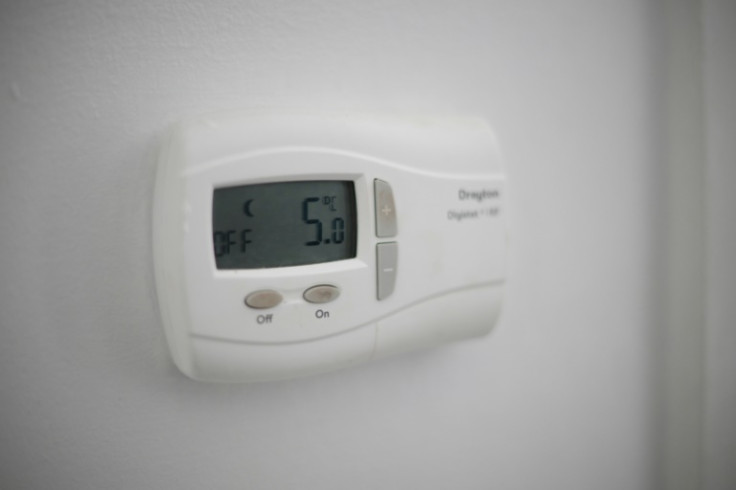Over 4,000 UK Homes To Get Better Heating Through £13.9 Million Heat Networks Upgradation Plan
A reported 55 heat networks across the country are being upgraded so that thousands of old and inefficient heating systems in UK homes get lower energy bills ahead of the winter.

Amidst the net zero backlash and the cost-of-living crisis, the Rishi Sunak government has announced a new measure to upgrade old and inefficient heat networks in the country.
The Department for Energy Security and Net Zero declared on September 26, that the heat networks in thousands of homes and businesses in the UK will be upgraded to a reliable and efficient service. This move by the UK government seeks to lower the energy bills in the country.
This comes at a time when Prime Minister Rishi Sunak tried to win voters after a net zero U-turn.
The Sunak government is supporting 55 heat networks with £13.9 million in funding to upgrade the existing system. According to the UK government, this will improve reliability and prevent breakdowns. People are likely to have a reliable heating supply with lower energy bills as winter approaches.
Over 4000 homes in the UK have old and inefficient heating networks which leave them without hot water and heating facilities. Through the funding announced yesterday, the UK government is trying to reduce the number of poor-heating supply homes.
Over £13.2 million has been allocated to 24 heating projects across the country and another £667,000 will be spent on finding ways to improve the service in 31 projects. The heat network operators will work towards ensuring that the UK homes get a reliable service.
This is part of the Sunak government's £32 million Heat Network Efficiency Scheme (HNES).
Earlier in February the UK government started the HNES with a £288 million Green Heat Network Fund to create heat networks across the UK which run on low-carbon heating sources like solar or geothermal energy or heat pumps. HNES is a crucial plan for heat network funding in the UK.
Through this scheme, projects like the Leeds City Council will get over £2.2 million to upgrade its heat networks and will reduce leakage and heat losses in 837 UK homes. The Great Places Housing Association received £1.6 million which will upgrade 299 UK homes under the Richmond Park heat network in Sheffield.
Around 700 UK homes in Gloucester, Stockport, Aylesbury and Brixton will get better heating as four heat networks serving the area got £2 million under the Guinness Partnership project.
Earlier in August, the UK government started consultation to get ideas to improve the heat networks of the country. This consultation is active till October 23.
The new proposals offered greater protection to UK consumers when they were supplied with upgraded heat networks. This is better than traditional gas and electricity contracts.
The government aims to ensure fair pricing through a price cap on energy bills in the future. It will also make sure that the service offered by heating companies has a consistent standard backed by clear and regular energy bills.
This would ensure fairer prices through their inclusion in a potential future price cap on energy bills, consistent standards for quality of service and supply of heat, backed up with regular and clear bills.
Heat network upgradation essential for net zero commitment
Speaking about the heat networks upgrade the Energy Efficiency and Green Finance Minister Lord Callanan said that UK homes shouldn't have to worry about reliable heating and hot water supply.
Lord Callanan underlined the importance of this funding as it would upgrade the inefficient heat networks and prevent frequent breakdowns. This will ensure less energy is used for heating UK homes and businesses, Lord Callanan added.
According to the Energy Efficiency minister upgrading the existing ineffective system is as important as building new heat networks. The UK government is spending millions to reduce emissions and make low-cost heating available to people, said Lord Callanan.
The Energy Efficiency minister further elaborated on how heat networks reduce carbon emissions by supplying heat to buildings from a central source. This abolished the use of energy-intensive heating solutions like gas boilers that increase the energy bill.
Lord Callanan termed heat networks "a significant" component of "UK's carbon reduction commitment".
However, some heat networks in the UK are over 40 years old and need urgent upgrades for energy efficiency. Most of them are poorly installed and aren't well maintained. Some of the equipment has worn out, revealed Lord Callanan.
Funding breakdown for regional heat networks
East Midlands: £96,000
East of England: £59,976
London: £5,419,244
North East: £16,000
North West: £3,483,412
South East: £159,543
South West: £740,743
West Midlands: £62,443
Yorkshire and the Humber: £3,898,464
© Copyright IBTimes 2025. All rights reserved.






















